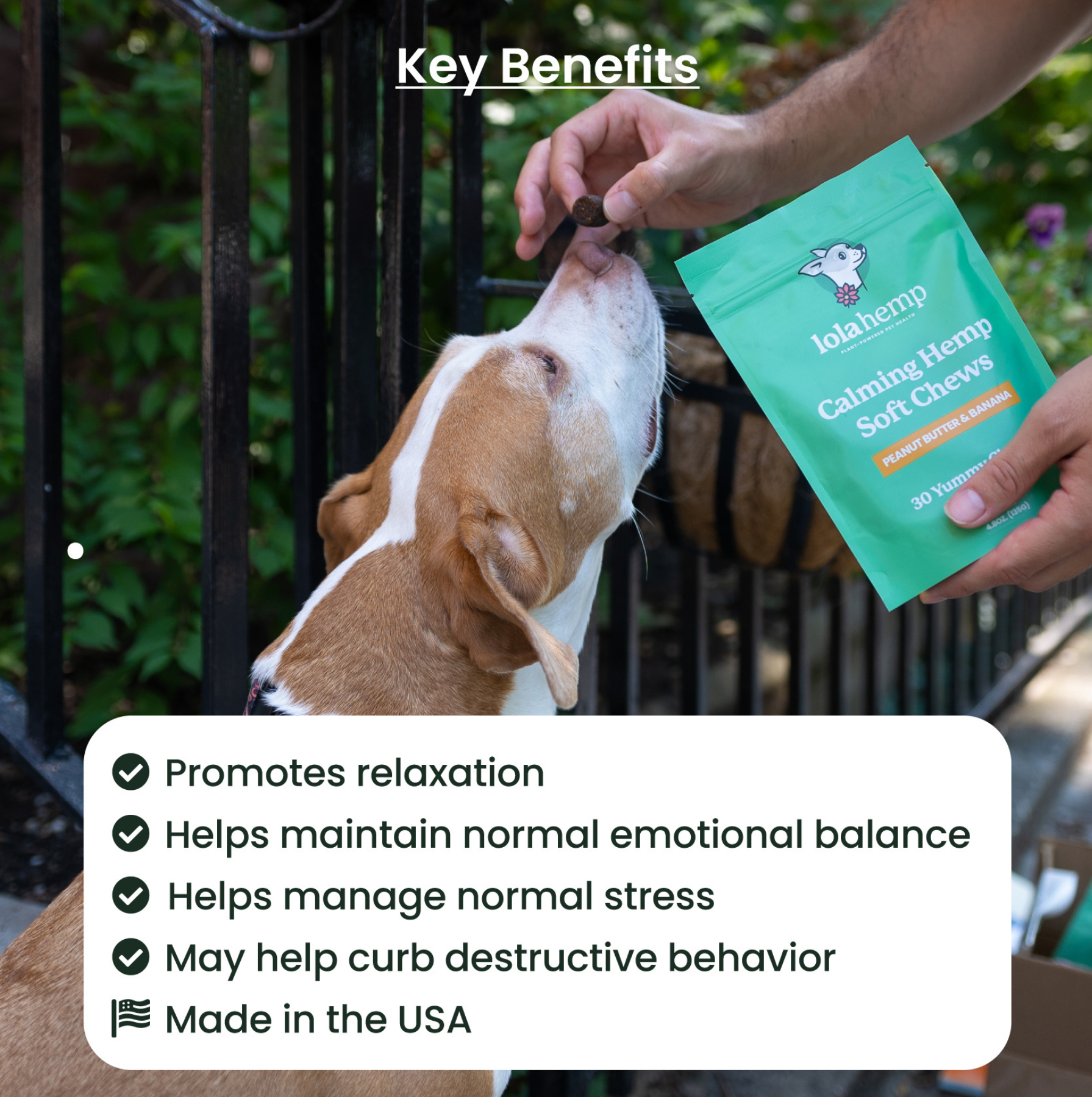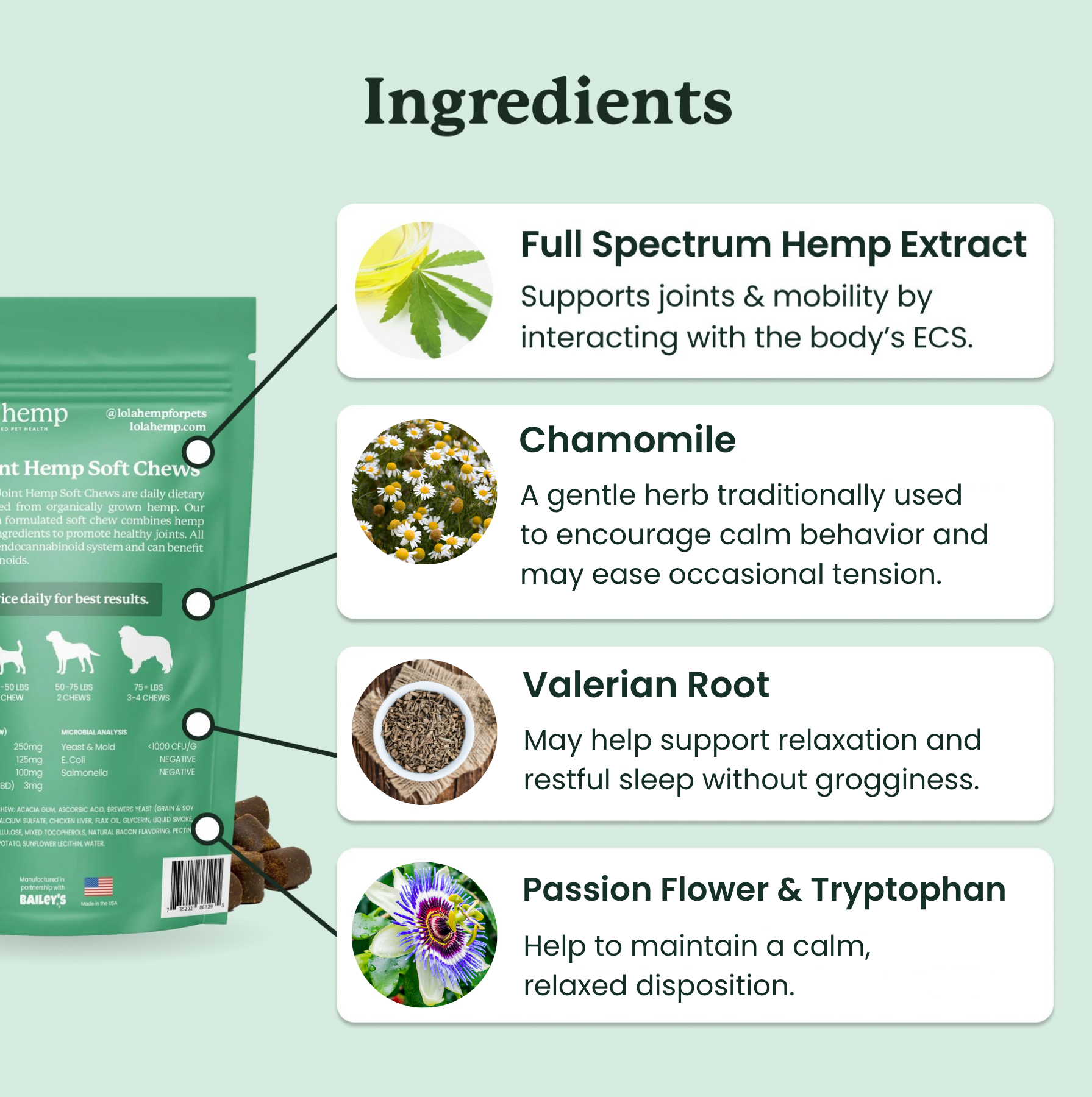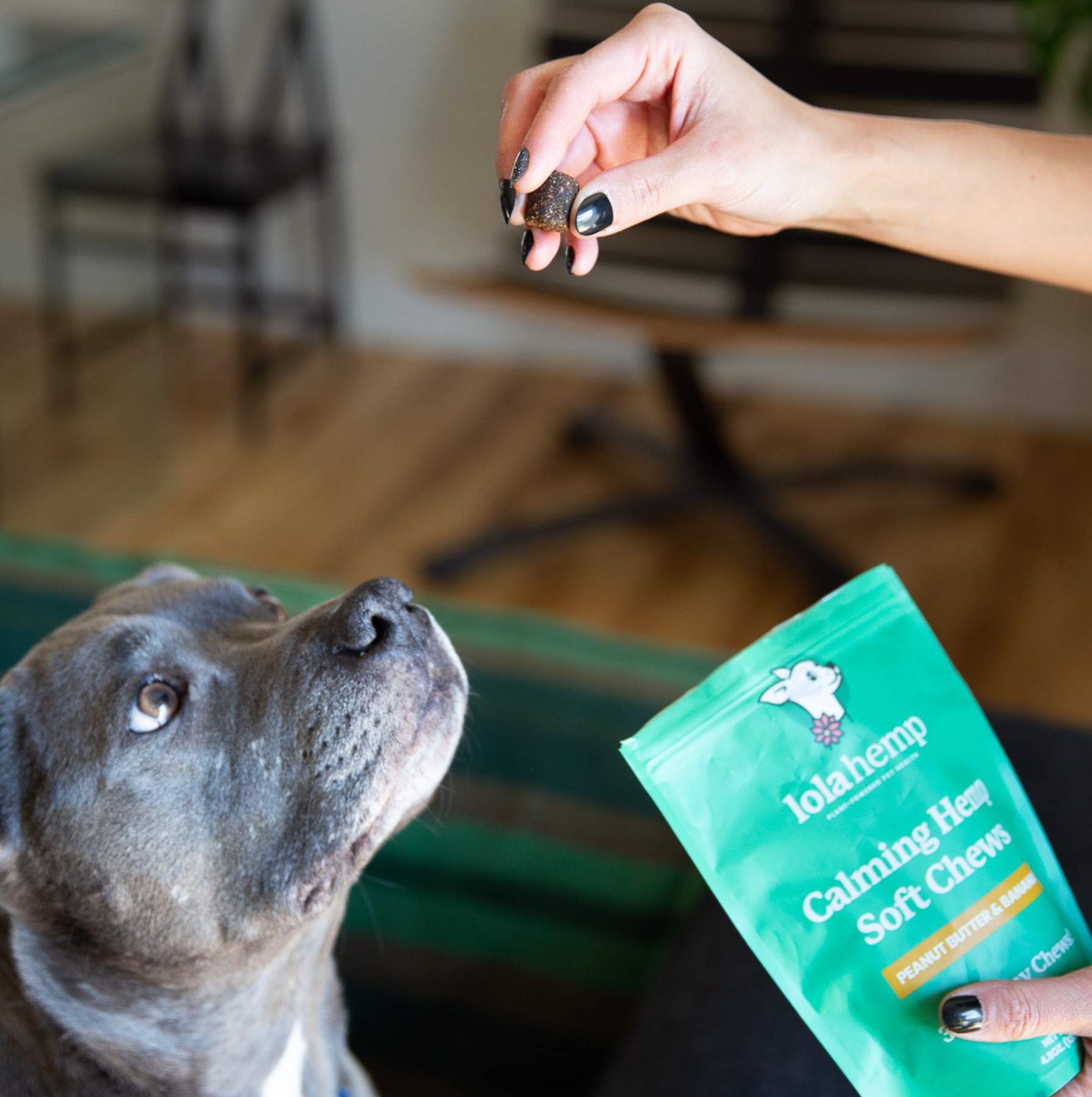Dogs are notorious for whining - some dogs do it more than others!
In all cases, though, our dogs are trying to communicate something to us when they whine. It may be that they're bored, hungry, in pain, or something else entirely. All of these things are important to address, as each of them directly ties to their overall wellbeing and quality of life.
This article explores the top 5 reasons that your dog could be whining. If the reasons below don't seem to fit your dog's reason for whining, it may be a good idea to schedule a visit to your veterinarian to diagnose the issue and consider natural options to relieve their emotional or physical discomfort.
1. Communication of Discomfort
Dogs often whine when they are experiencing physical discomfort or pain. This vocalization serves as a way for them to alert their owners to their distress, especially when other signs, such as limping or changes in behavior, might not be immediately obvious. Whining can be an early indicator that something is wrong, whether it’s due to an injury, illness, or other forms of discomfort like digestive issues.
It’s important for pet owners to observe other signs of pain or distress, such as changes in appetite, excessive licking, or reluctance to move, as these can help pinpoint the cause of the whining.
- Whining often indicates pain or discomfort.
- It serves as a form of communication to alert owners to distress.
- Other signs of pain, like limping or changes in appetite, should be observed alongside whining.
2. Seeking Attention
Dogs are social animals that thrive on interaction with their humans. Whining is one of the ways they try to get attention, whether they want to play, be petted, or simply have their needs met. For example, a dog might whine if they want to be let outside, receive a treat, or join their owner for a walk. Puppies, in particular, use whining as a primary method of communication to get attention from their caregivers.
In some cases, a dog may whine more frequently if they’ve learned that this behavior results in attention from their owner, even if it’s negative attention. This can reinforce the whining behavior over time.
- Whining is often a way to gain attention, whether for play, affection, or other needs.
- Puppies may whine more as they learn to communicate with their owners.
- Whining can be reinforced if the dog receives attention (positive or negative) in response.
3. Anxiety or Stress
Dogs may whine when they’re feeling anxious or stressed, particularly in situations where they feel uneasy. This is common in dogs with separation anxiety, where they become distressed when left alone or when their owner prepares to leave. Whining can also occur during changes in the environment, such as moving to a new home or encountering unfamiliar people or animals. Stress can manifest in a variety of ways, and whining is often a sign that the dog is not coping well with the situation.
In these cases, the whining is usually accompanied by other symptoms of anxiety, such as pacing, drooling, or destructive behavior. It’s important to identify the cause of the stress to help alleviate the dog’s anxiety and reduce the whining.
- Whining can be a sign of anxiety or stress, particularly in response to separation or environmental changes.
- Dogs with separation anxiety often whine when left alone.
- Whining may be accompanied by other symptoms like pacing or drooling.
4. Frustration
Dogs may whine when they experience frustration, particularly when they are unable to reach something they want or achieve a goal. This can happen when a dog is confined in a crate, unable to access food or a toy, or when they are prevented from engaging in a preferred activity. Frustration whining is often seen in dogs who are highly motivated by rewards or who are particularly energetic and have not been adequately exercised or stimulated.
In some cases, frustration whining can be a sign that the dog’s mental or physical needs aren’t being fully met, and providing more opportunities for play, exercise, or mental stimulation may help reduce the behavior.
- Whining due to frustration occurs when dogs are prevented from reaching a goal or achieving something they want.
- Frustration whining is common in energetic dogs or those motivated by rewards.
- Providing more mental stimulation and physical exercise can help alleviate frustration whining.
5. Desire for Comfort
Dogs may whine when they’re seeking comfort, particularly if they’re feeling unwell, tired, or cold. When a dog is in need of reassurance, especially during times of distress, they may whine to indicate they want closeness or care from their owner. This can be especially true for dogs that are sensitive to changes in their routine, environment, or health. Older dogs or those with health conditions may whine more often, seeking warmth, a comfortable resting spot, or companionship.
Comfort-seeking whining can also happen when a dog is trying to get closer to their owner, particularly if they sense their human’s absence or are feeling vulnerable. It’s their way of asking for extra attention and reassurance.
- Whining can be a sign that a dog is seeking comfort, especially when they feel unwell or tired.
- Older dogs or dogs with health issues may whine more frequently for comfort.
- Comfort-seeking whining often occurs when a dog feels vulnerable or needs reassurance from their owner.
Conclusion
5 of the most common reasons for dogs whining are discomfort, desire for attention, anxiety, frustration, and a desire for comforting from their owners. There are other reasons dogs whine, but these are among the most common.
If you're unable to figure out why your dog is whining excessively, a call to your veterinarian is a good idea. The underlying reasons for whining can be serious and problematic if they go untreated.
Why Is My Dog Whining FAQ
Why is my dog whining all of a sudden?
Sudden whining may indicate discomfort, stress, fear, or a new environmental trigger that your dog is reacting to.
Why is my dog whining for no reason?
It may seem like there is no reason, but dogs often react to subtle cues such as noises, sensations, or emotional changes.
Why is my dog whining at night?
Nighttime whining can stem from anxiety, discomfort, restlessness, or a need for attention or reassurance.
Why is my dog whining when nothing is wrong?
Even if nothing appears wrong, dogs may whine due to habit, mild stress, or a desire for companionship.
Why is my dog whining when I leave the room?
This behavior is often linked to separation anxiety or a desire to remain close to their owner.











